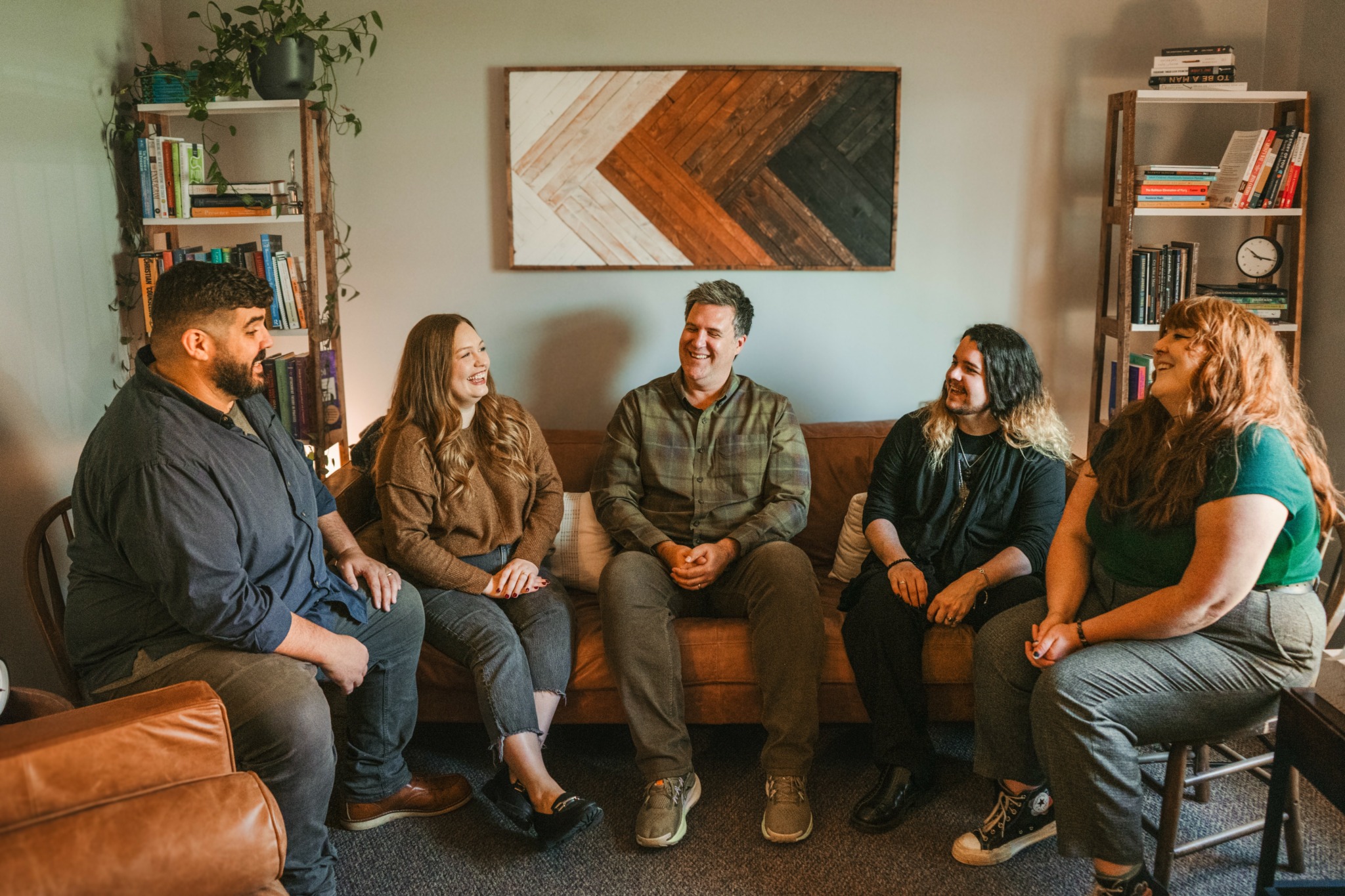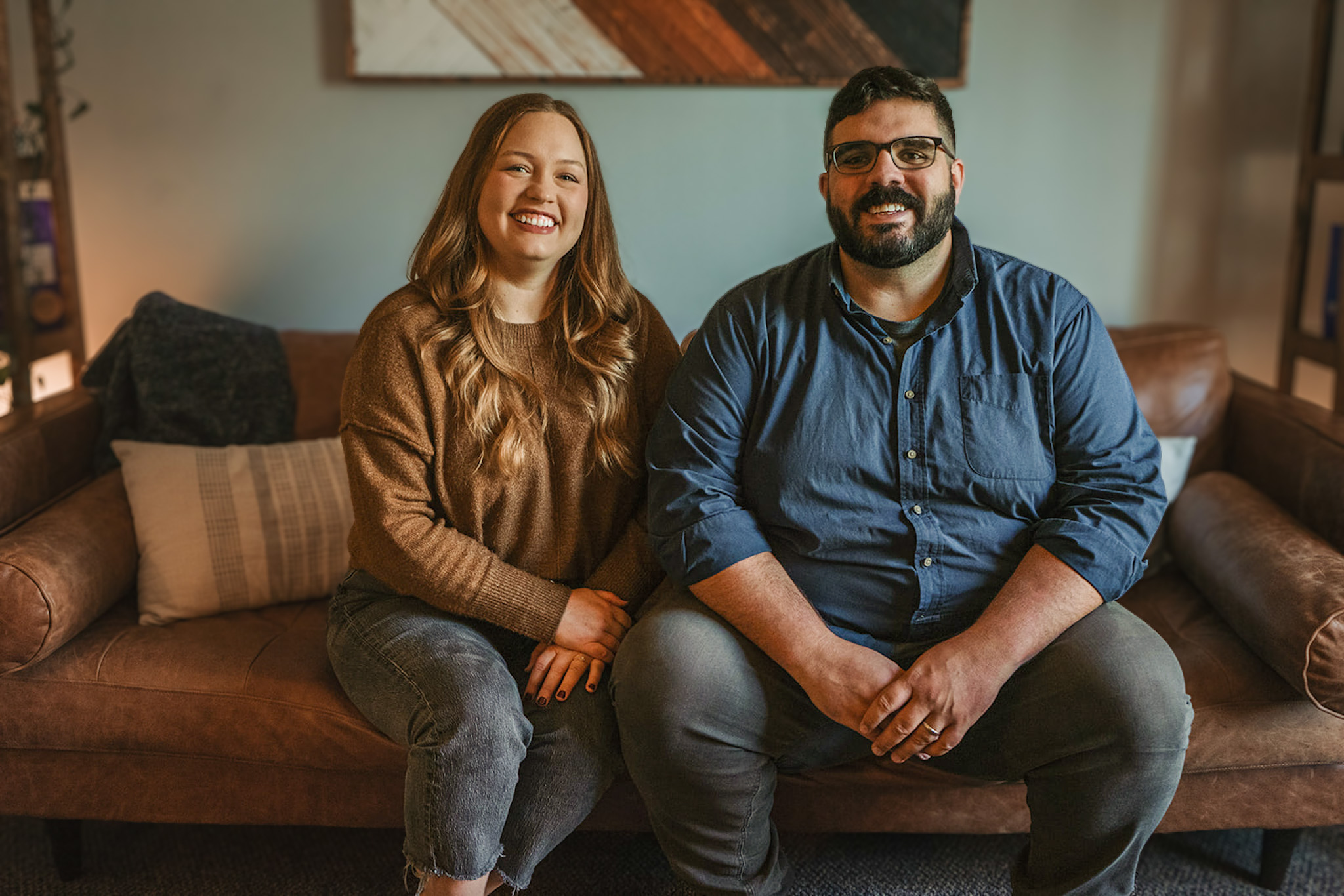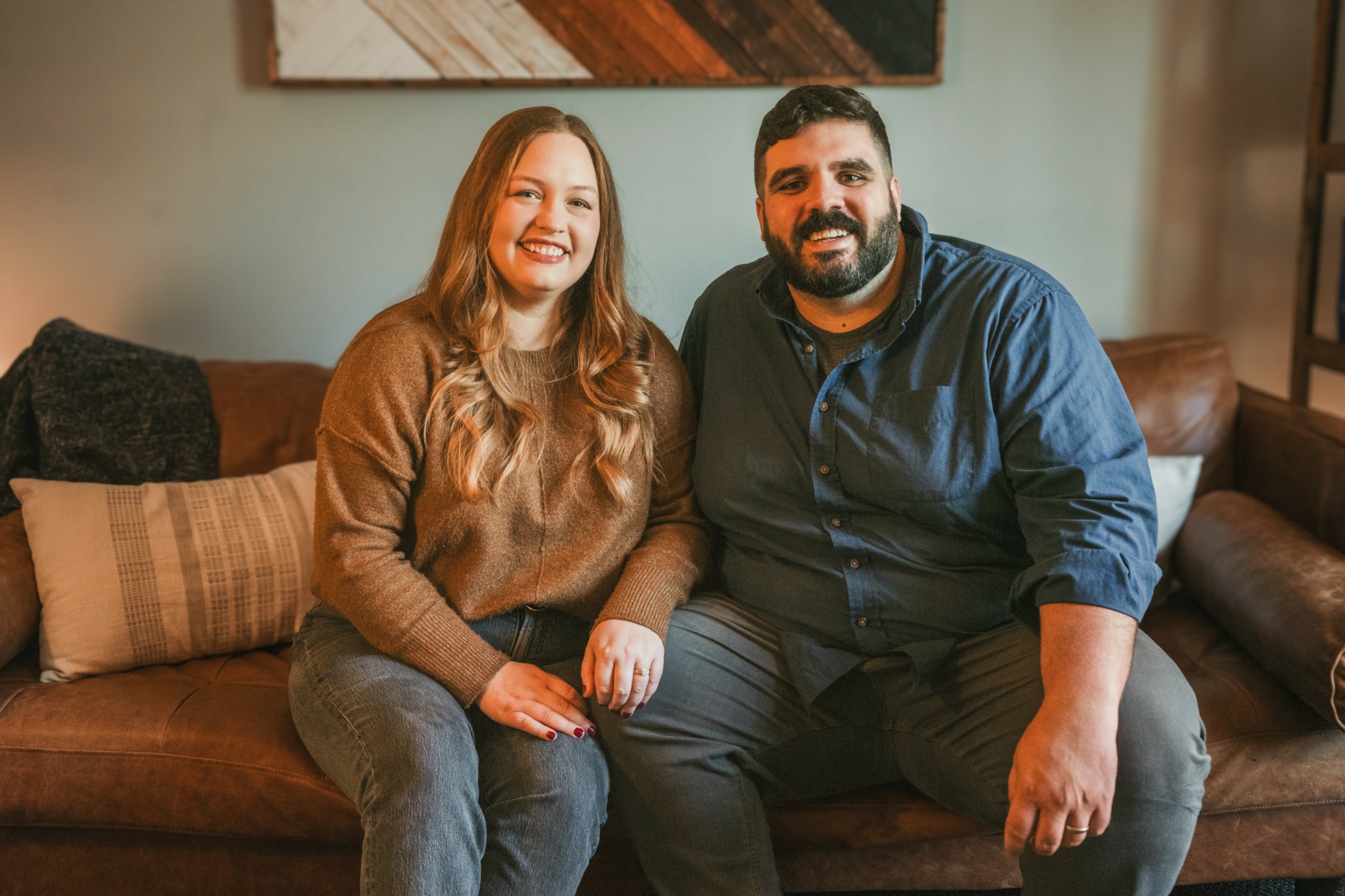We recently connected with Reid Horn and have shared our conversation below.
Reid, appreciate you joining us today. We’d love to hear the story behind how you got your first job in field that you currently practice in.
The first time I sat across from a man facing prison time, he had three DUIs, a thick court file, and a hard stare that said, Don’t try to fix me.
I was a grad student in Springfield, Missouri, fresh into my master’s program in counseling psychology. My first real job in the field had me working in Missouri’s court systems—DWI Court, Drug Court, Veterans Court, and Family Court. These men were either going to prison… or they were going to work with me.
No pressure, right?
I hadn’t been in their shoes. I didn’t have a record. I hadn’t struggled with addiction. But I had my own wounds, especially around my relationship with my father. I was still working through what it meant to be a good man, what it meant to feel secure in that identity. And here I was, trying to earn the trust of men who had every reason to keep their guard up in life.
I noticed something early on in working with the court systems. A lot of recovery work, especially with men, started with shame. The pattern was usually: break them down, point out their failures, then try to rebuild them from rock bottom. But what if we did the opposite? What if we started by being kind and curious with them, not by shaming them? What if we helped these men understand that even their worst behaviors were usually desperate attempts to meet real, legitimate needs, just in unhealthy ways?
In our groups, I would talk about something most of us never questioned growing up. When a little boy falls off his bike and scrapes his knee, he’s stereotypically told, “You’re fine.” “Walk it off.” “Don’t cry.” But when a little girl falls off her bike? She’s asked, “Where does it hurt?” “What do you need?” That difference teaches boys to hide their pain and ignore their needs. And that training carries over into adulthood — into their marriages, their parenting, their mental health, and their addiction. Men aren’t broken. But we are often disconnected from our emotions, from our needs, and from each other. That’s what I wanted to help change.
Around that same time, I went to a community training led by a therapist named Brian Frizzell—someone who shared my passion for working with men. There was something about the way he spoke. He wasn’t just teaching a room full of professionals—he was modeling what it meant to be a grounded, present, and emotionally honest man. I saw strength in him, but it wasn’t the loud, performative kind. It was quiet. Centered. Rooted. The kind of strength I wanted to live into myself—not just as a therapist, but as a future father, a partner, and a man. After the session, I told myself I should introduce myself. Maybe even ask if we could work together someday. But I froze. I walked out of the building, all the way to my car… and sat there, beating myself up. Something in me knew this was important. So I psyched myself up and went back inside. By the time I returned, the building was locked. Thankfully, someone let me back in. Brian was still there, packing up. I introduced myself, nervous but hopeful. We talked. And over time, a powerful mentorship began. Brian didn’t just shape how I practiced therapy—he shaped how I show up in my life. As a man who leads with authenticity and vulnerability. As a partner who listens deeply with his wife and is intentional about their relationship. And now, as I prepare to become a father myself, I realize how much of his example still guides me. I was proud to have a hand in helping create what would become the Authentic Men’s Group (AMG)—a space that now helps men in Missouri and Tennessee show up with vulnerability, integrity, and purpose.
That first job in the court system and working with Brian and AMG taught me what’s possible when a man feels emotionally safe. I’ve seen anger turn into insight, silence break into honesty, and tears become a starting place for healing, not shame. It also shaped how I help couples today, especially when one partner (often the man) has learned to shut down or withdraw in the face of conflict. I help them return to the table, stay present in the discomfort, and have the conversations they never thought they could have. Because I believe men need better ways to process their pain, not just alone, but in community. Whether it’s through group work, couples intensives, or one-on-one therapy, my mission is to help men stop hiding and start living with authenticity.
If you’re a man who’s tired of going it alone, a couple stuck in the same painful cycles, or even a therapist trying to better engage with men, especially those who come off aggressive or emotionally shut down, I’d love to connect. At Horn Counseling in Nashville, Tennessee, we specialize in helping men reconnect with who they really are, not just who they’ve been told to be.

Reid, before we move on to more of these sorts of questions, can you take some time to bring our readers up to speed on you and what you do?
I’m a husband, new dad, licensed therapist, and the founder of Horn Counseling in Nashville, Tennessee. I help men become emotionally connected, confident, and present in their lives — and I help couples rebuild trust, communicate with honesty, and stay bonded through life’s hardest seasons.
My journey into this work started with two things: a difficult relationship with my father and a deep desire to create a healthier, more connected community, starting with myself. Most men are taught to shut down, perform, and push through pain alone. I wanted to offer something different — a path built on connection, honesty, and lasting change.
I began my career working with men in Missouri’s court system — DWI Court, Drug Court, Veterans Court — men facing prison time if they couldn’t change their lives. It was there I learned the power of empathy, structure, and trust. I learned that behind every behavior is a need. That being shamed by others and shaming ourselves doesn’t lead to healing, but kindness and curiosity can.
Eventually, I launched Horn Counseling to create a space where people, regardless of gender, sexual orientation, race, nationality, immigration status, religious beliefs, or financial situation, could access meaningful, high-quality therapy. Too often, mental health care feels inaccessible or unsafe for marginalized communities. I wanted to build something different — a place where people feel seen, respected, and empowered to grow. We’re proud to offer individual therapy, couples therapy, premarital counseling, therapist supervision, and sliding scale options for those who may not want or be able to use insurance. Our men’s group, the Authentic Men’s Group (AMG), gives men a space to drop the mask, practice emotional honesty, and live with integrity in community with other men.
I’m especially passionate about helping men who feel stuck in shame, anger, or emotional disconnection — men who want to show up differently for their kids, their partners, their communities, and themselves. Some are tired of watching life pass by without participating. Others are just done pretending they’re okay. Most have never been taught how to deal with shame, anger, stress, or sadness in a healthy way — and therapy gives them the chance to learn, practice, and live differently.
What I wish more people understood is this: showing up to therapy doesn’t mean something’s wrong with you. It means you’re choosing growth on purpose. Vulnerability isn’t weakness — it’s the gateway to real connection. And most men are starving for that, even if they don’t have the words for it. The people in your life — your partner, your kids, your friends — don’t need a perfect man. They need a present one. And being emotionally unavailable might have protected you once… but now, it’s likely costing you more than you know.
I don’t just help people process. I teach new skills, explore past patterns, challenge limiting beliefs, and build action steps that lead to real change. My style is challenging but supportive — always kind, curious, and committed to helping clients grow into who they were always meant to be.
What sets me apart is that I specialize in helping men who might not otherwise ever come to therapy — the ones who are used to hiding, performing, or shutting down. I speak their language. I understand their resistance. And I build trust in a way that allows them to feel safe without losing their sense of strength. I’m also developing a training program to help other therapists do the same, especially those working with men who come across as aggressive, emotionally withdrawn, or hard to reach. Most therapists were never trained to work with those clients, unfortunately. I’m building tools to change that.
I’m currently creating online courses for men who want to start their emotional growth journey on their own terms, as well as digital trainings for therapists who want to deepen their work with male clients. The future of therapy, I believe, includes more accessibility, more cultural nuance, and more courageous conversations.
If there’s one thing I hope you take away from my story, it’s this: change is possible. You don’t have to keep shutting down. You don’t have to do life alone. Whether you’re a man trying to be more present, a couple trying to reconnect, or a therapist learning to engage hard-to-reach clients, I’d be honored to walk that road with you.

What do you think helped you build your reputation within your market?
What helped build my reputation wasn’t just that I worked with men — it was that I named a pain so many people were silently living with:
“The man I love has shut down emotionally, and I don’t know how to reach him.”
Most therapists, through no fault of their own, aren’t trained to work with men who show up angry, emotionally walled-off, or withdrawn. That’s the work I specialize in.
When I started publicly naming those patterns and offering a space for men to drop the armor, I expected these men to reach out. What surprised me was who came first — their partners! Women, men, and members of the LGBTQ+ Community who were in relationships with these men and who loved these men deeply but felt completely alone in the relationship.
They came to therapy not just to work on themselves, but to better understand how to support the man in their life. They were tired of being the only ones doing the emotional labor. They didn’t want to give up — they just didn’t know how to break through the wall.
And beneath all that anger or distance? There’s often just a man who’s scared. Scared to be seen. Scared to identify and communicate their needs. Scared to get it wrong.
That’s when I realized: I wasn’t just helping men. I was helping the people who love them, too.
When you speak clearly and compassionately into a pain point people don’t know how to name, they pay attention. That’s what built my reputation — not just the work I do, but how I talk about it.
I help men come out from behind the mask.
I help partners feel seen and supported.
I help people reconnect to themselves and to each other.

Any advice for growing your clientele? What’s been most effective for you?
Most of the men I work with didn’t think therapy was for them.
They weren’t looking for self-help.
They were just tired of feeling disconnected from their partner, their kids, even themselves.
They didn’t want to sit in a room and talk about their childhood for 50 minutes a week.
They wanted help showing up in their relationships, in their families, and in their own lives, as the kind of man they always hoped they could be, but didn’t know how to access.
The most effective strategy for growing my clientele has been speaking directly to those men and the people who love them.
Instead of using clinical language or trendy mental health buzzwords, I started naming what it actually feels like to be a man who’s emotionally shut down but still wants to be better. I talked about the anger, the silence, the shame, the sense of failure. The quiet pain of not knowing how to connect and the louder pain of knowing it’s hurting the people they care about the most.
And when I spoke those truths out loud, something powerful happened: the right people started showing up.
Not just the men themselves, but their partners. Women trying to connect with emotionally unavailable men. Gay men navigating relationships with partners who had gone emotionally dark. People who weren’t ready to give up, but felt alone in carrying the emotional weight.
That’s when I realized I wasn’t just helping men. I was helping the people who love them, too.
But I didn’t stop at messaging. I didn’t just market to men. I built experiences that actually serve them.
A men’s group centered on authenticity over performance.
Couples intensives that give men tools to stay present in conflict instead of shutting down.
One-on-one therapy that’s kind, curious, and action-focused; not just insight-heavy.
The truth is, when you make therapy feel like a place where men are welcome, not just tolerated, they show up.
And when men show up, families can heal.
That’s been my strategy from day one:
Make space for the men that society teaches to stop crying and hide their pain.
Contact Info:
- Website: https://www.horncounseling.org
- Instagram: @horncounseling
- Facebook: @horncounseling
- Other: https://www.amg.buzz/

Image Credits
Amanda Johnson


